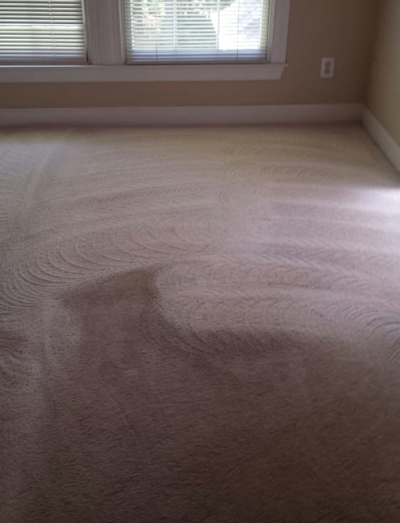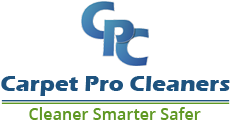Has your carpet or upholstery been blemished by pet stains or spots? Carpet Pro Cleaners can help you eliminate spots and stains on your carpet and upholstery and make it look like new again! We use environmentally friendly spot removal products.
Carpet Pro Cleaners is proud to be a PROCYON® Partner!
Carpet Pro Cleaners is proud to announce our partnership with PROCYON® Products, maker of the industry’s first cleaning products to be certified under Green Seal’s Revised GS-37, 2009 Standards! Procyon has been providing environmentally safe, quality products that work for over 30 years.
After years of trials and experimentation with other companies and products we are proud to put Procyon’s products to use and make them available to our valued customers. Both Carpet Pro Cleaners and Procyon share in our commitment to the cleaning industry and the impact of cleaning chemicals on the environment has been strong and steadfast.

All of our PROCYON products are powerful and yet soap free, odor free, hypo-allergenic, non toxic with no VOCs and no off-gassing. Made with all natural ingredients, PROCYON products are one of the safest on the market today as well as being highly effective on a variety of stains.
We believe that we have an obligation to protect the health of the people, and are aware of our responsibility to our industry, that is why we have maintained the search for the highest level of quality and safety in all of our products. We are committed to educating the public in proper, safe, and efficient cleaning methods, so that the public health as well as our environment may be maintained and improved.
PROCYON’s all natural degreasers and water softeners dissolve and emulsify contaminants and soil. Particulates that are not rinsed out dry to a crystallized form allowing easy removal with a good vacuum cleaner. This will leave no soapy, sticky, residue in your carpets.
Although people may believe they are doing the right thing by using various biodegradable detergents, it is important to remember that these detergents can have an adverse impact on the environment and our lives in thousands of ways and that wastewater should never enter our waterways.
Phosphate-containing detergents
When phosphate detergents are used, disposal of the wash wastewater is an environmental issue. The breakdown of the phosphorus complexes in phosphate detergent wastewater (and in other household products, and in human and industrial wastes containing phosphates) creates biologically available phosphates.
In waterways these can contribute to an oversupply of phosphate. Low concentrations of plant nutrients, such as nitrogen and phosphorus, can limit plant and algae growth. When phosphates from the sources mentioned above are introduced to waterways any phosphorus-limitation may be removed and may cause excessive algae growth which, in turn, can cause other problems.
These introduced phosphates, for example, can lead to increased numbers of insects, crustaceans and fish in the waterway which, when they and the algae die and decompose, can reduce oxygen in the water to such low levels that other aquatic organisms are killed the release of toxins by some cyanobacteria (blue-green algae) that can kill other organisms and make the water unsuitable for humans, livestock and wildlife.
For these reasons wastewater containing phosphate detergents should be directed to the sewerage system and not be allowed to wash into the stormwater drain.
Phosphate-free detergents
Disposal of phosphate-free detergent wastewater is also an environmental issue. Phosphates are primarily used in detergents as ‘builders’, which remove calcium ions, and allow surfactants (the cleaning agents) to work more effectively.
In phosphate-free detergents the phosphates are replaced by either alternative builders such as zeolites or alternative builders and an increased concentration of surfactants.
The problem with this is that surfactants are among the most toxic compounds in detergents and have been implicated in decreasing the ability of aquatic organisms to breed. To minimize the environmental harm caused by phosphate-free detergents they must be treated in sewage treatment plants. Unfortunately, even after treatment the effects of some alternative builders remain.
Most algae are an important part of the ecosystem; however their presence in excessive amounts becomes an environmental problem.
Finally, biodegradable detergents can cause problems in our storm water systems, streams and rivers. Ensure that no wash wastewater is permitted to enter these systems. Ensure that all wash wastewater is either collected by a licensed waste disposal company or a trade waste permit is obtained to dispose of it into the sewerage system.
AND IN THE USA – What is the Safer Detergents Stewardship Initiative?
The EPA is developing the Safer Detergents Stewardship Initiative (SDSI) to recognize companies, facilities, and others who voluntarily phase out or commit to phasing out the manufacture or use of nonylphenol ethoxylate surfactants, commonly referred to as NPEs. These surfactants are used in detergents in cleaning and other products. Both nonylphenol ethoxylates and their breakdown products, such as nonylphenol, can harm aquatic life.
The Safer Detergents Initiative will complement EPA’s Aquatic Life Ambient Water Quality Criteria for Nonylphenol. These criteria are designed to protect aquatic life in both fresh and saltwater and can form the basis for state and tribal water quality standards.
How will Safer Detergents Complement the Aquatic Life Ambient Water Quality Criteria for Nonylphenol?
Nonylphenol is both an intermediate in the manufacture of nonylphenol ethoxylate surfactants and an ultimate degradation product. Nonylphenol ethoxylate surfactants are used in many sectors including cleaning and industrial processes.
The Design for the Environment Program has identified safer alternatives through its partnership work with industry and environmental advocates. These safer alternative surfactants are comparable in cost and are readily available. The Safer Detergents Initiative will encourage the manufacture and use of safer surfactants, reducing the amount of nonylphenol ethoxylate surfactants and nonylphenol in streams. This preventive action will assist in attainment of the Aquatic Life Criteria for Nonylphenol published in the Federal Register in February 2006.
Read about the technologies we use for cleaning process
We serve Raleigh, Durham, Cary, Apex, Holly Springs, Morrisville, Chapel Hill, RTP and more.

